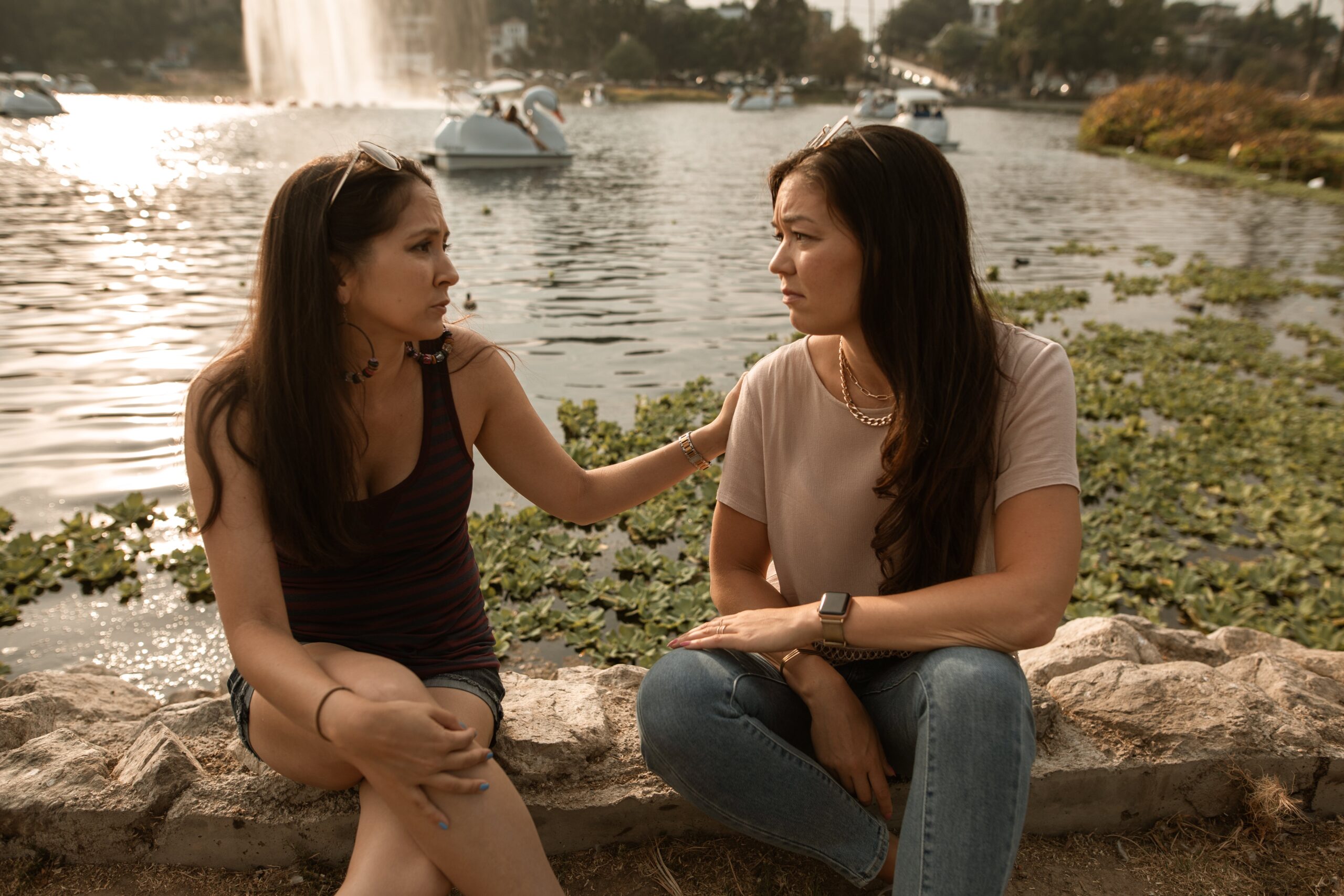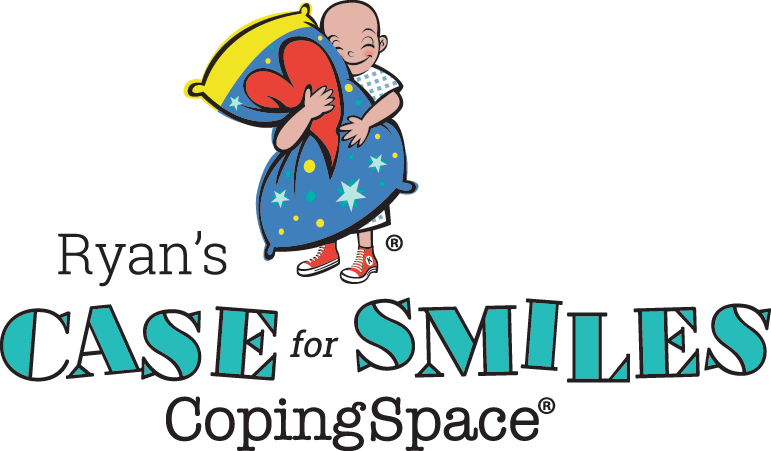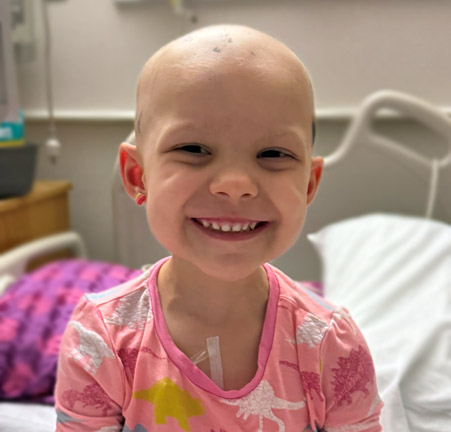BLOG
What to Say to Parents of a Child With Cancer Or Other Serious Illness

When a friend’s child is diagnosed with cancer or other serious illness, it can be hard to know what to say. The situation is scary and overwhelming, and you don’t want to mess it up. But parents of children with serious illnesses need support from those they love. In fact, research shows caregivers who are happy with their social support have less mental suffering long term. And those parents of pediatric cancer patients struggling with anxiety and depression who have less support feel worse later on. (Satisfaction with Support vs Size of Network, Harper et al. May 2017).
So, despite your fear of saying the wrong thing to your friend, don’t choose to say nothing at all. Knowing that you care and are there for them is what matters most. While you may not be able to cure the illness or eliminate their pain, you can let them know they aren’t alone.
To make talking with your friend easier, we’ve put together a list of things to say to parents of a child with cancer or another illness – and what to avoid. Read on for ideas, talking tips and other useful advice for supporting the families with an ill or injured children in your life.
Things to Say to a Friend Whose Child Has a Serious Illness or Injury
The most important thing when talking to a parent of a child with cancer or another serious illness is to focus on compassion and let them know that they are on your mind. Parents of children with medical conditions often feel isolated and very alone. So, reach out! Even if you can’t make them feel better, they’ll at least know they have your love and support.
You can connect with your friend in person, on the phone, over Zoom, on FaceTime or online. As everyone is different, so check to see what’s best and most supportive to them. And know this may change over time. Perhaps a quick text between appointments is all they can manage right now. But later on, they may need the deeper connection of in-person time with friends.
Additionally, parents of medically complex children may not always be able, or want to, reply. However, that does not mean they don’t appreciate your concern. Let them know you don’t expect a response, or anything in return. And when they do talk, be sure to take the time to truly listen. It can be healing to have someone just listen to your thoughts, worries and feeling – even when they don’t know how to respond.
Finally, stay in touch regularly and over time. At diagnosis, families are often flooded with support but this typically trickles off while their child’s medical struggles go on. Changes in treatments or health status, anniversaries, holidays, and other significant dates can be just as hard as the start.
9 Things to Say to When a Kid Has Cancer and Another Serious Illness
Everyone is comforted by different words and actions, but here is a list of things to say to a friend whose child has cancer or another serious illness to get you started. These words are also great for siblings of children with severe illnesses, their friends, and extended family members too.
- “I want to help you. What night can I drop a dinner off for you?” (Or another specific offer)
- “I’m always here to talk if you need me – about your child or anything else.”
- “You’re handling this with so much courage and strength, but it’s okay to fall apart sometimes too. You can lean on me anytime.”
- “I’m thinking of you.”
- “How are you doing today? Do you want to talk about it?”
- “I’m proud of you. I can only imagine how hard this is.”
- “I am so sorry you and your family are going through this. I wish I could make this go away.”
- “I can see how much you love and support [child’s name]. You’re a good mom/dad/etc.”
- “I don’t know what to say, but I love you.”
What Not to Say to a Parent Whose Child Has Cancer
Even with the best intentions, sometimes certain phrases can do more harm than good. Don’t assume you know what your friend feels, or that you could do better in their place. Every family and situation is unique, and you can’t judge without having been there. Also, it’s best to avoid unsolicited advice, platitudes or stories of others’ medical experiences – good or bad. They’re already getting guidance from their child’s doctors and it’s not helpful to compare.
Based on advice from parents of children with cancer and other illnesses, here are a few things not to say to your friend.
- “I don’t know how you do it. I could never handle this. You’re so brave.”
- “Everything happens for a reason. / God has a plan. / God only gives you what you can handle.”
- “Have you tried [treatment/diet/lifestyle choice]? I read online it helps cure cancer.”
- “I heard a story about someone who had this and they were cured. / I knew someone who had this and they lived 2 years before dying.”
- “I know exactly how you feel. My [aunt, mom, friend, coworker etc] had [diagnosis].”
- “I’m so upset. I can’t stop worrying about you/your child.”
- “Don’t worry. It will all be okay.”
- “What’s his/her prognosis?”
- “What do you think caused it?”
- “I wouldn’t have chosen that treatment option/any parenting choice.”
- “You need to take care of yourself.”
Other Ways to Support Parents of Children with Cancer
Words aren’t the only way to support a friend whose child has a serious illness or injury. Gifts, logistical support and help with their other children matter too! Many caregivers need help but struggle to come up with specifics when asked. So suggesting something you’d like to help with, and a few specific days/times, is usually the best way to start.
Maybe you could spend some special time with your friend’s well child. Or offer rides to extracurriculars, doctor appointments and other activities. Meals, cleaning support, pet care and yard work are all great ways to help too.
And don’t forget, your friend also needs to take a break and have fun. Remind them of who they were pre-diagnosis by suggesting a low effort activity you both enjoy. Coffee, errands dates or even just a walk can be the break your friend really needs. And don’t be upset or deterred if they say no thank you or put you off. They may not be ready to accept help, but that may change with time.
More Tips for Helping Parents of Children with Cancer and Other Illnesses
For other ideas of ways to help a friend whose child has cancer, check out the CopingSpace Community page and our 10 Gifts to Give a Friend blog. And know, just by researching what to say to your friend whose child has a serious illness, you’re already on your way to offering the best kind of support.





